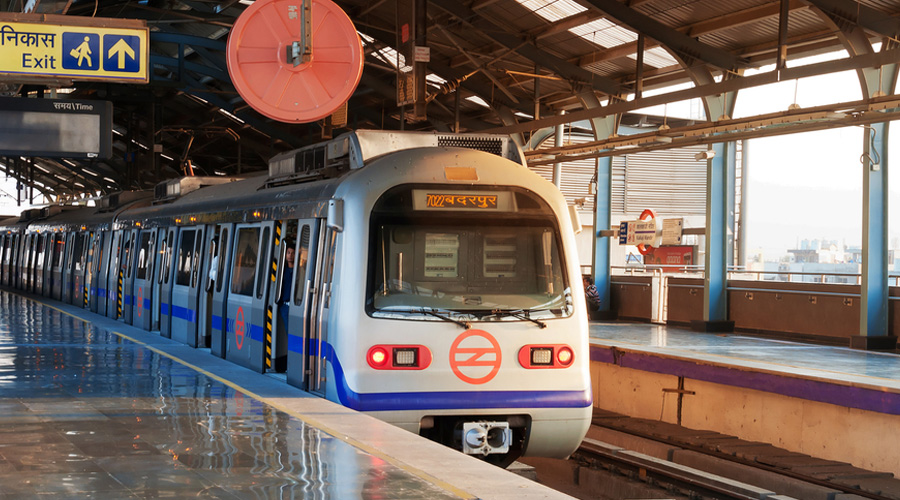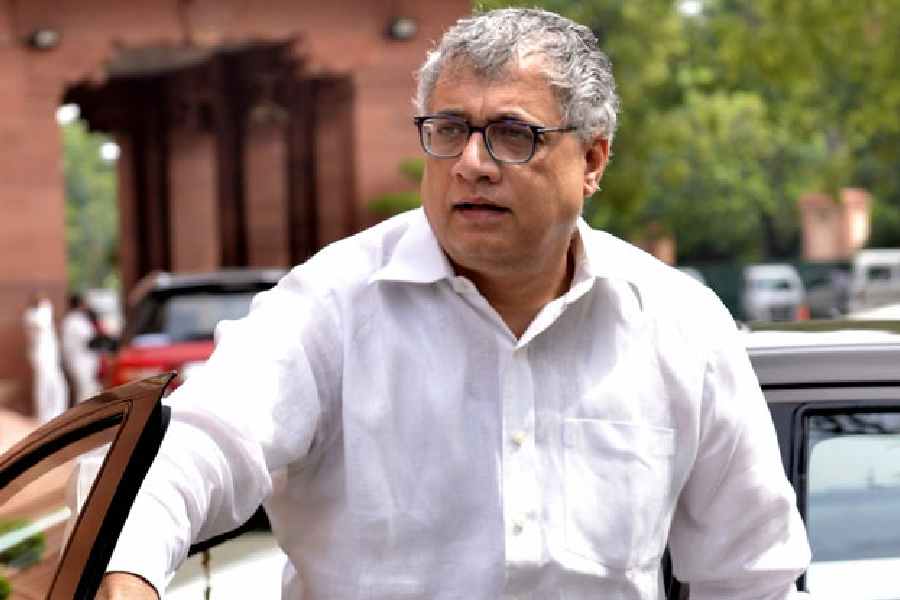Prime Minister Narendra Modi will flag off the country's first-ever fully-automated driverless train service on the Magenta Line of the Delhi Metro on Monday that will herald a new era of enhanced mobility driven by cutting-edge technology.
With the commencement of these new-generation trains, the DMRC will enter the elite league of “seven per cent of the world’s Metro networks” which can operate services without drivers, the Delhi Metro said on Sunday.
After starting driverless services on the 37 km Magenta Line (Janakpuri West Botanical Garden), another major corridor of the Delhi Metro, 57km Pink Line (Majlis Park Shiv Vihar) will also have driverless operations by mid-2021, the DMRC said in a statement.
“Prime Minister Narendra Modi is going to inaugurate India's first-ever driverless train operations on the Delhi Metro's Magenta Line (Janakpuri West Botanical Garden) as well as the fully operational National Common Mobility Card (NCMC) services on the Airport Express Line via video-conferencing tomorrow, scheduled at 11 am,” it said.
These innovations are going to herald a new era of travelling comfort and enhanced mobility for the residents of Delhi and other cities in the National Capital Region.
The commercial operation of these new-generation trains, set to be a major technological feat, will begin later the same day, after the event, a senior Delhi Metro official said.
“The driverless trains will be fully automated which will require minimum human intervention and will eliminate the possibilities of human errors. Delhi Metro has been a pioneer in introducing technology-driven solutions for passenger comfort and this is another step in the same direction,” the statement said.
Once the driverless trains are operationalised on the Pink Link too, the Delhi Metro will have a driverless network length of about 94 km which will be approximately nine percent of the world's total driverless metro network, it added.
After the launch, also it will be the first time when commuters will be able to use the NCMC on any corridor of the Delhi Metro.
Prime Minister Modi in March 2019 had launched the indigenously-developed NCMC to enable people to pay multiple kinds of transport charges, including using metro and bus services across the country.
Dubbed as ‘One Nation One Card’, the inter-operable transport card allows the holders to also pay for their bus travel, toll taxes, parking charges, retail shopping and even withdraw money.
The NCMC, which will be fully operationalised on the Airport Line will also be a major milestone as anyone carrying a RuPay-Debit Card issued in the last 18 months by 23 banks (all these are NCMC compliant as per directions of the Department of Financial Services, Government of India), from any part of the country will be able to travel on this line using that card, the Delhi Metro said.
The same facility will become available on the entire Delhi Metro network by 2022, it added.
This is the first major event of Delhi Metro in 2020 which saw an unprecedented lockdown in the earlier months due to the COVID-19 pandemic.
The Delhi Metro had resumed services with curtailed operation on the Yellow Line from September 7 after being closed for over five months.
The Delhi Metro's currently operational network spans about 390 km with 285 stations across 11 corridors (including NOIDA Greater NOIDA line). On regular days, the average daily ridership of the Delhi Metro is over 26 lakh.
“Pre-COVID time, about 60 lakh ‘journeys’ were being performed every day on the Delhi Metro network making it the mass transportation backbone of the NCR,” it said.
A ‘journey’ in metro parlance relates to a trip that includes all corridors used by a rider in a single travel.
Driven by cutting-edge technology, the Delhi Metro Rail Corporation has been conducting various trials for its new 'driverless trains', whose flagging off will be a major technological milestone for the DMRC and the country.
Although initially drivers will be deputed for operating the trains they would be gradually withdrawn to move to Unattended Train Operation (UTO).
Delhi Metro had begun its commercial operation on December 25, 2002, a day after the then prime minister Atal Bihari Vajpayee had inaugurated DMRC's first stretch, spanning 8.2 km from Shahdara to Tis Hazari, with just six stations.
The driverless train, having six coaches, is equipped with several advanced features.
The metro rail scenario in the entire nation has undergone a massive transformation in the last six years. While in 2014, only 248 km of metro lines were operational in five cities, presently 702 km are operational in 18 cities in India, the DMRC statement said.
“In the days to come, over a thousand kilometres of new lines shall be added and about 27 cities in the country will have metro connectivity. By 2022, when the nation celebrates its 75th Independence Day, India will have a combined metro network of over a thousand kilometres which will carry more than a crore passengers every day,” it said.










